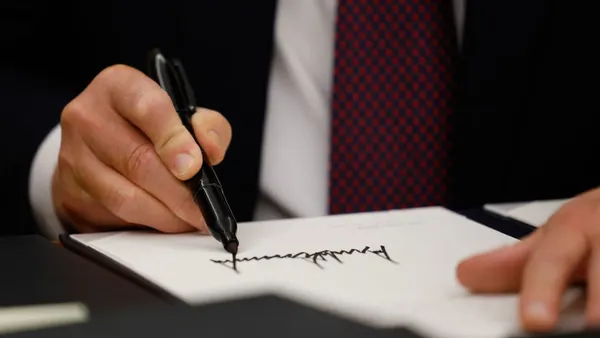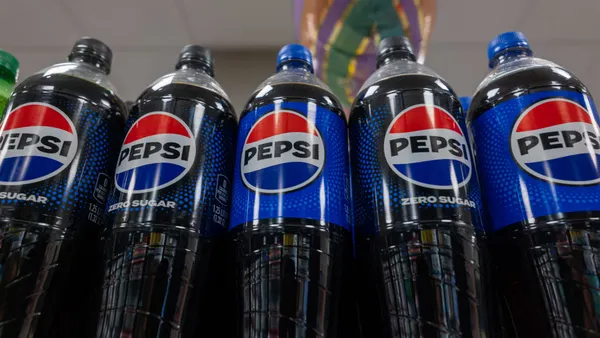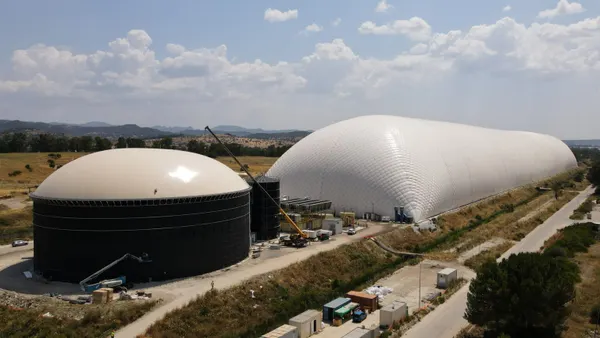Dive Brief:
- JPMorgan Chase is working to allow voluntary carbon markets to issue blockchain tokens at the registry level that represent ownership of carbon credits, permitting market participants to issue, transfer and retire credits, the bank announced Wednesday.
- JPMorgan is currently exploring testing processes with carbon registries from S&P Global Commodity Insights, EcoRegistry and the International Carbon Registry through its blockchain business unit, Kinexys, according to the July 2 release.
- The three registries are testing the viability of carbon credit tokenization, as JPMorgan hopes its solution will bring more data transparency to the market and allow for additional market token standardization, according to a report accompanying the announcement.
Dive Insight:
Bringing carbon registries to blockchain and creating a “single, tokenized carbon ecosystem” that allows carbon credit sellers and buyers to seamlessly interact and transfer credits, JPMorgan said, could help address issues of transparency, lack of standardization and market fragmentation.
The bank is currently developing an app to allow the carbon registries to represent ownership, data attributes and rules for the assets in a digital token and directly issue and track credits on the Kinexys Digital Assets Blockchain platform. JPMorgan launched the blockchain business unit to allow for tokenization of financial assets and to utilize other blockchain benefits. The unit has processed more than $1.5 trillion in transactions in the three years since it began serving clients, according to its webpage.
J.P. Morgan Payments Head of Natural Resource Advisory Alastair Northway said in the release that the “voluntary carbon market is ripe for innovation.”
“Tokenization could support development of a globally interoperable system that adds confidence into the integrity of the underlying infrastructure,” Northway said. “This technology could support greater information and price transparency, which could ultimately lead to greater liquidity in the market.”
The bank said in its report that native tokenization projects, like the one it’s undertaking, “can be difficult to implement in use cases based around mature markets with long-established registers and system integrations.” However, JPMorgan said that given the relative nascency and concentration of the voluntary carbon markets — where a small number of registries account for “85-90% of assets issued,” according to the report — it believes there is a greater potential for faster adoption.
While the creation of a tokenization standard, with embedded project and credit attributes, would aid issues of data transparency and lack of standardization across the market, JPMorgan said its application is “not an authority on [credit] quality.” The bank said the application’s role is “to enforce standardized data structures, improve transparency, strengthen resiliency and enable users to independently assess and interpret the available information for specific projects and credits on our platform.”
The carbon registries will look to allow external stakeholders to more easily read and act on registry data. In addition to the viability of tokenization, the registries will test Kinexys’ capabilities for account, project and credit lifecycle management and include specific objectives to explore the application’s technical connectivity, compatibility with different data models and its overall functionality.
International Carbon Registry Chief Operating Officer Oli Torfason said the collaboration represents an “important step toward a modern, convergent structure for the carbon market.”
“This collaboration reflects a shared commitment to transparency, innovation, and building the infrastructure needed for a high-integrity climate economy,” Torfason said in the release.











